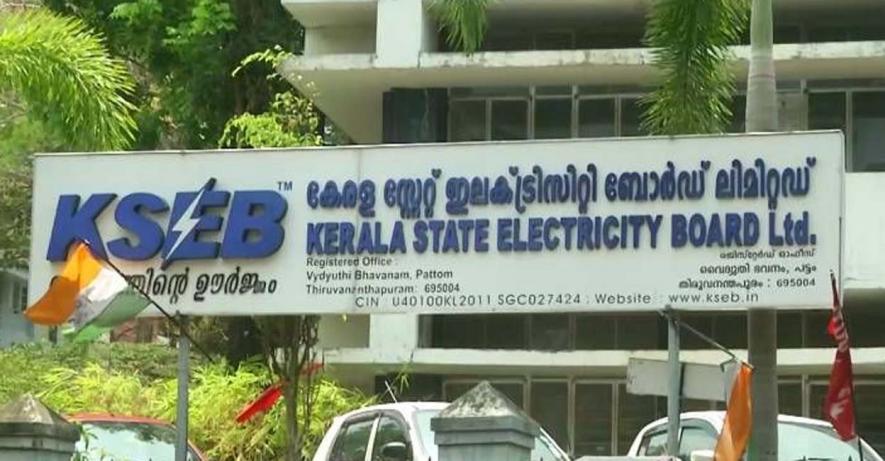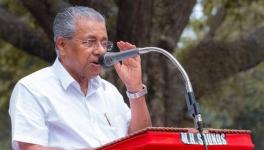Kerala Braces for Possible Power Supply Disruption Due to Monsoon Deficit and Cancelled Purchase Agreements

Image credit: OnManorama
The shortage of rainfall during the Southwest Monsoon across the state has put the Kerala State Electricity Board (KSEB) in a tight spot. As the temperature increases with misty mornings and humid days, electricity demands have also risen.
The board is facing the task of ensuring an uninterrupted power supply, even as the water level in hydroelectric generation dams is falling. The rain deficit, as of August 15, stood at 44%, while the storage level in dams was around 40%.
Though the deficit narrowed to 9% in July compared to 60% in June, the 90% shortfall till August 15 has further hampered electricity generation in hydroelectric stations. The state has received 877.1 mm of rainfall between June 1 and August 15, against the normal rainfall of 1,556 mm.
Adding to the trouble, the cancellation of the purchase of 465 MW by the State Electricity Regulatory Commission (SERC) from August 21, which was initiated during the previous United Democratic Front (UDF) regime, will further contribute to the demand.
However, Mebeat Weather has predicted higher rainfall than normal, beginning from the second week of September.
90% SHORTFALL IN AUGUST
The Southwest monsoon arrived in Kerala two weeks late, on June 15, but has continued to be erratic over the past two and a half months. The ‘breakin monsoon’ for more than 10 days—the longest since 1972—has led to changes in atmospheric conditions as well.
The shortfall, till August 15 was as high as 90%, with only 25.1 mm rainfall received as against the normal rainfall of 254.6 mm. The temperature in August has also remained high in comparison with the previous years.
“With generation from hydroelectric stations reduced due to decreasing water levels, we are unable to produce electricity at the maximum capacity. And due to increased demand, we already have a shortage of 100 MW, together with the 465 MW shortage expected from August 21,” said K Krishnan Kutty, the minister for electricity, while addressing the media.
Kerala has been providing uninterrupted power supply without load shedding which was prevalent prior to 2016. The Left Democratic Front (LDF) made an electoral promise to abolish load shedding, but the present crisis may lead to the repetition of power cuts.
“The share of electricity from the central pool has also been reduced citing a shortage of coal. Several factors, including the shortage of rainfall during the monsoon, are affecting our electricity demands,” said Kutty.
PURCHASE AGREEMENTS CANCELLED
The minister has scheduled a meeting on August 21 to assess the situation following the denial of an extension for the purchase agreements by the SERC. Four agreements—two with Jhabua Power Limited (115 MW and 100 MW), and one each with Jindal Power Limited (150 MW) and Jindal India Thermal Power Limited (100 MW)—which were entered into at a cost of Rs 4.29 billion, will not be available starting from August 21.
The agreements were initially signed for a period of 25 years from 2016. However, due to the scrapping of these agreements, the KSEB had to pay Rs 10 per unit to private players. Upon the KSEB's request, the companies continued to supply electricity at the originally agreed-upon cost for 75 days. This supply will be discontinued from August 21, disrupting the plans of the KSEB.
The KSEB has floated new tenders for the purchase of electricity from private players. However, it anticipates that the costs will likely exceed Rs 4.29 per unit. The minister said he is hopeful about securing electricity at a lower expense, but the specifics will only become clear once the submitted tenders are opened and reviewed.
The Idukki Dam, the largest arch dam playing a crucial role in power generation in Kerala, has 2331.84 feet of water, 54 feet less than the previous year. Other major dams have less than 50% of their maximum capacity, dealing a blow to the electricity management plans.
Get the latest reports & analysis with people's perspective on Protests, movements & deep analytical videos, discussions of the current affairs in your Telegram app. Subscribe to NewsClick's Telegram channel & get Real-Time updates on stories, as they get published on our website.
























